The buzz of fresh ideas at Idea Festival 2014: jazz and teamwork, stress and resilience, edible cellphones and a tree with 40 different kinds of fruit
When ideas are flying fast and furious – as they do at the Idea Festival – it sometimes helps to write down things you don’t want to forget.
So we left with pages of favorite quotes:
“Eat life with a big spoon.” (The Rise Group)
“Character is being the same person in the dark as you are in the light.” (Stephen Pemberton)
“Don’t worry about the United States. No matter how hard we try, we can’t screw up.” (Peter Zeihan)
“If you really want to be an artist, here’s my advice: don’t have anything to fall back on.” (Wynton Marsalis)
“Confidence is overrated. Courage is more important…. And understand that you could be the ripest, juiciest peach in the world, and someone is still going to hate peaches.” (Debbie Millman)
This sampling gives the flavor of this four-day celebration of ideas and creativity.
Among our takeaways from the 20-plus speakers we heard:
Living in the moment is an antidote to fast-paced lives filled with uncertainty.
Continuous curiosity can fuel creative connections whether we are artists, scientists, teachers or entrepreneurs.
We find community more places than ever before, from work to online.
We are the authors of our own life stories.
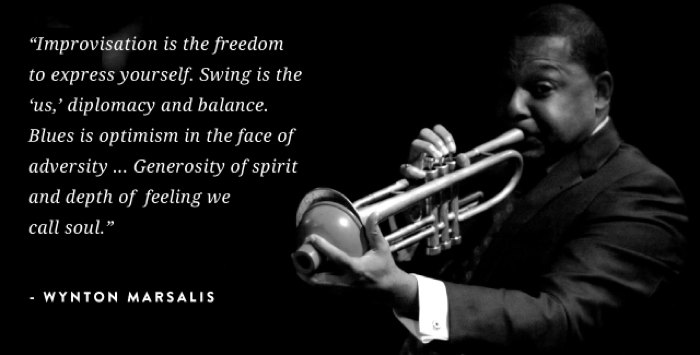
“The Creative Life” by Wynton Marsalis, stellar musician and artistic director of Jazz at Lincoln Center, focused on jazz as a way to think about life.
“Improvisation is the freedom to express yourself. Swing is the ‘us,’ diplomacy and balance. Blues is optimism in the face of adversity … Generosity of spirit and depth of feeling we call soul.”
Asked about his creative process, Marsalis talked about the magic of teamwork.
While he works best under pressure, he said that ideas often “ferment” in his mind. He writes in longhand, not on a computer. “I want to feel it.”
One broader message: if music is meditation, achieved through alchemy with fellow musicians, as he said, maybe we can strive for that off-stage – in our teams and in life.
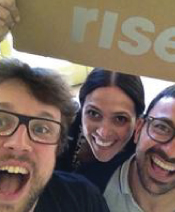 “Operate at a Higher Level” by The Rise Group, a New York-based business and leadership development team, offered ways to use humor and optimism as keys for creativity.
“Operate at a Higher Level” by The Rise Group, a New York-based business and leadership development team, offered ways to use humor and optimism as keys for creativity.
- “Habits are comfy chairs.” You have to leave them to develop fresh ideas.
- Creativity takes practice.
- Increase positive energy by framing questions optimistically. “What’s possible with resources we have available?” not “How are we going to afford that?”
“Immortality” by Stephen Cave, philosopher, author and TED speaker, described four stories people have used across time and cultures to manage the fear of death.
We dream of escaping death with the help of a fountain of youth, a magic elixir or a new scientific discovery. We accept the fact that we die but believe we can be resurrected or brought back to life. We acknowledge that we all die but believe that our souls live on. We face the finality of death, but we continue to live on through a legacy, our children or our accomplishments.
Instead, Cave says, let mortality be a positive force that shapes the way you live each day. Treasure the present. Cultivate gratitude. Think more of others.
“Global Disorder and the Future of America” by geopolitical strategist Peter Zeihan, author of the upcoming book “The Accidental Superpower,” described an optimistic future for the U.S. rooted in geographic advantages and positive demographic trends.
With abundant inland waterways, two ocean coasts, growing energy independence and a population balanced with young workers, he said, the U.S. is better off than many competitor countries – and poised for strength.
“People believe the U.S. is in decline, but for 14 consecutive decades we have emerged stronger,” he said. “Remember this: we are going to be fine.”
“Disruptive Thinking and a Hole in the Sky” by Sam Van Aken, an art professor at Syracuse University, showcased creative projects that stretched skills and led to new perspective on what’s possible. Three examples fascinated his audience:
- A tree grafted to produce 40 different kinds of fruit – including varieties of peaches, plums, cherries and apricots. It’s part artwork, part research project and part conservation of heirloom and antique plants.
- “Oh my God,” an installation related to the 9-11 terror attacks with dozens of voices repeating that phrase in a chilling chorus.
- “Hole in the Sky,” a weather balloon/atmospheric project. If that seems a little indescribable, it’s OK, says Aken. “Art and poetry take place where language breaks down.”
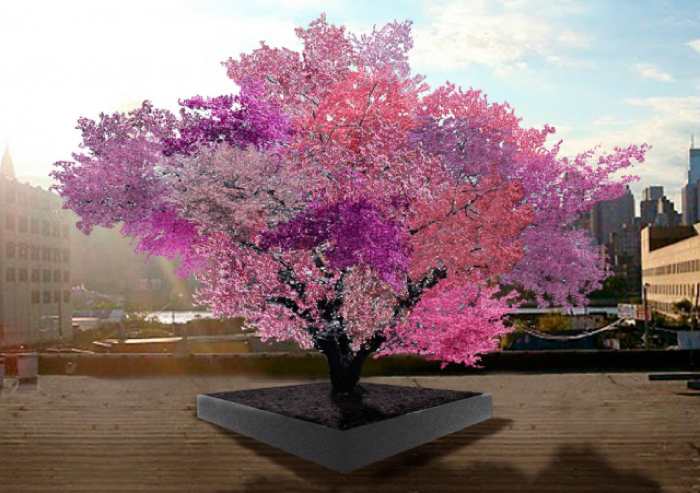
“A Chance in the World” by Steve Pemberton, diversity officer at Walgreen’s and author, offered his personal story about conquering a childhood of deprivation.
“My weapon was that I loved to read. It gave me vision, values, purpose and a sense of place.”
He talked about looking at life through the “lens of possibility” instead of limiting circumstances – focusing “not what you inherit but what you build.”
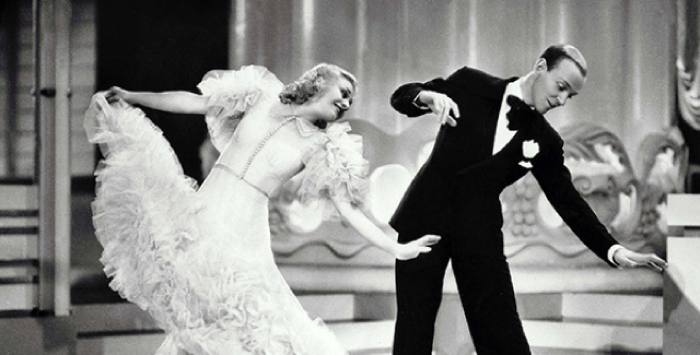
“Glamour: The Art of Visual Persuasion” by Virginia Postrel, who has a book and TED talk on the topic, dissected the glamorous allure that captures our imaginations.
She described glamour as the feeling of “If only” – that your life would be better if only you had that dress, that car, that house.
Glamour, she says, promises escape and transformation from your everyday reality. It offers mystery you can embellish with your imagination. It suggests grace and effortlessness.
Glamour evolves over time. Remember the elegance of smoking cigarettes? Gone. On the other hand, tune in today’s emphasis on back-to-the-earth elegance.
Her message: understand glamour. Use it if you can – especially if you are involved with branding. But don’t be too manipulated by it.
“Smarter Than You Think” by author Clive Thompson argued that technology shapes our communication and our lives in positive ways.
- We do more “public thinking” and share more ideas in writing – texts, email, posts and tweets – than any other generation, 3.6 trillion words a day.
- “Ambient awareness” is growing – a sense of connectedness to people who are not with us, whether we are texting or participating in an online conversation.
- We are becoming more literate in new formats – not just words, but videos, photos, data-crunching on devices.
- Collaboration is increasing through online networks mobilized for fun or serious problem-solving.
One fascinating takeaway: the power of “weak ties.” If you are planning to use your network to find a job, make a work contact, buy a business, or rent an apartment, your closest friends may share the same background and knowledge as you. Weaker ties – the folks one or two rungs out – are likelier to have new information and be the better source.
As for those edible telephones … They were a joke from Julia Christensen, an Oberlin College professor and “trash activist” whose projects include photographs of landfills of digital device waste. Her presentation was part of Art on the Edge, showcasing artists supported by Creative Capital, a New York-based group that has awarded more than $30 million to over 500 artists.

Karen, many thanks for selecting the right quotes and ideas that seem to resonate with almost any situation that needs investigation. We were out of town, but I now I was “partially” in attendance. I’ll check MetroTv’s schedule for repeat videos of those speakers. Lynne
Thank you for sharing!